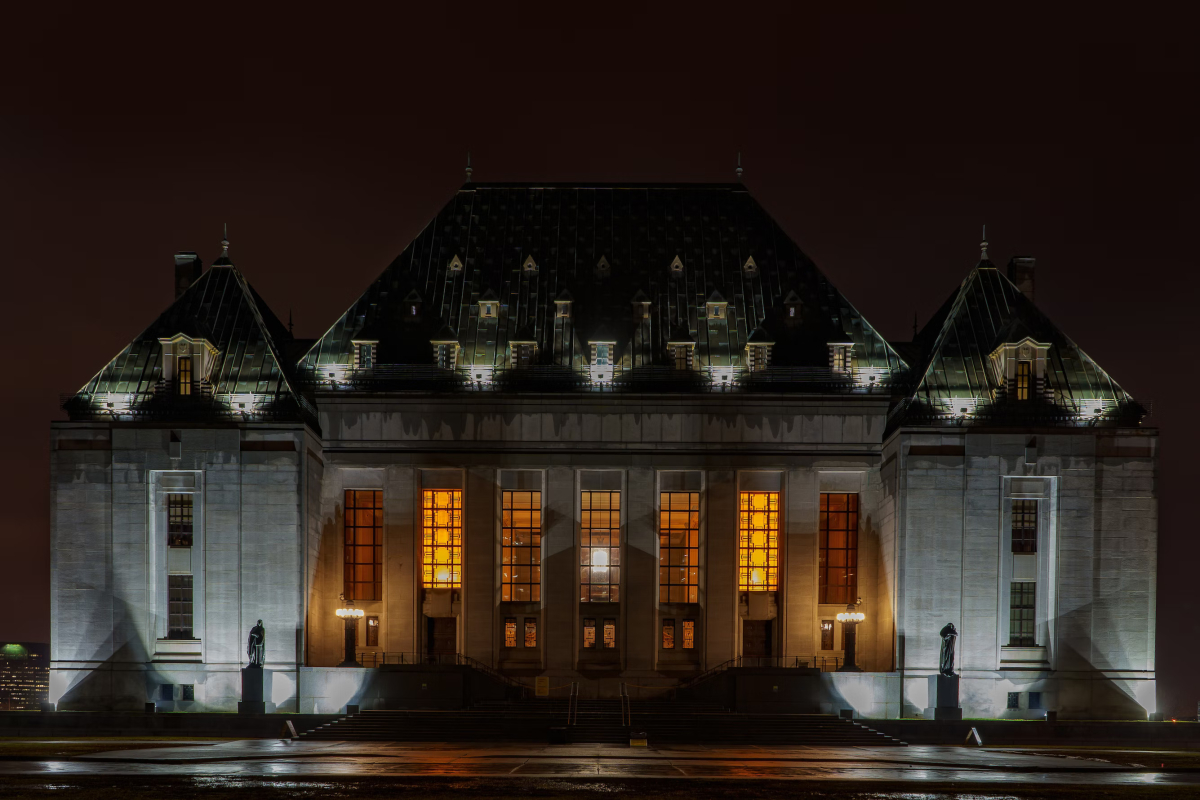Support strong Canadian climate journalism for 2025
A trio of Supreme Court decisions Friday overturned one rule on mandatory minimum sentencing but upheld two others, highlighting Canada's ongoing debate on how to approach the contentious topic.
The four-year mandatory minimum sentence for firing a gun at a house was deemed unconstitutional, with the court ruling it amounts to cruel and unusual punishment. However, two other mandatory minimums, armed robbery laws passed by Harper's tough-on-crime government, remain in effect.
Mandatory minimums can be removed by the Supreme Court if they are ruled unconstitutional, or they can be stripped by legislation in Parliament. In recent years, some have been overturned, while others were repealed by Ottawa through Bill C-5, which ends minimum sentences for some crimes, such as drug and tobacco offences and some firearm offences.
The debate over mandatory minimums — and whether to keep them — often comes down to striking a balance between two concerns: easing fears of violent crime in the wider community and minimizing the harm they can cause in racialized communities, which are overrepresented in the criminal justice system.
The Liberals, NDP and Greens backed Bill C-5. The legislation, which reached royal assent last November, will have a “great impact” on reducing the over-incarceration of Indigenous offenders, Justice Minister David Lametti previously told Canada’s National Observer.
However, federal Conservatives opposed the bill and continue to push for strict sentencing rules that carry a mandatory minimum. The federal Conservatives issued a press release applauding the court’s decision to uphold the two firearm mandatory minimums while deriding Trudeau’s “soft on crime government,” adding a Pierre Poilievre government would reinstate the Harper-era mandatory minimums that were repealed.
“Our cities have become crime zones,” the press release said. “We will restore safe streets.”
Proponents of mandatory minimums argue they are necessary to deter violent crimes, while critics, like Independent Sen. Bernadette Clement, believe judges should have “jurisdictional discretion” and flexibility to account for special circumstances arising from systemic discrimination, poverty and a past and present history of colonization.
Judicial discretion would allow judges to craft sentences that would benefit Canadian society and the people who go through the criminal justice system and come out the other side, said Clement, who still works as a part-time legal-aid lawyer.
“The communities miss them, their families miss them.”

The Truth and Reconciliation Commission (TRC), chaired by former senator and judge Murray Sinclair, has called for the repeal of all mandatory minimums.
Both Clement and Sinclair believe the Liberals’ efforts with Bill C-5 didn’t go far enough. Senators who criticized the legislation for stopping short of the TRC’s call to action are now strategizing on next steps. They will watch the data closely to see if the removal of mandatory minimums will make a difference in the over-incarceration of Indigenous and racialized offenders, Clement said.
Though both Pierre Trudeau and Jean Chrétien imposed mandatory minimum sentences, they became a fixture of Harper’s justice policy and Indigenous incarceration rates have risen since then.
But they have not been an effective deterrent: instead, they have caused an overrepresentation of Black and Indigenous people in prisons, particularly Indigenous women, Clement said.
Last year, Correctional Services Canada reported more than 50 per cent of women in maximum-security prisons are Indigenous. In total, Indigenous offenders make up 32 per cent of people incarcerated in Canada’s criminal justice system, while only representing five per cent of the country's population, according to an access-to-information request filed by Canada’s National Observer.
Clement thinks the conversations around mandatory minimums, which are typically chock-full of tough-on-crime slogans, arise from fear. It’s easy to be afraid, it’s a visceral emotion, but there are consequences for communities, Clement said.
“We need to have more conversations about that. It’s a complex issue, but we need to speak to Canadians in a more nuanced way, in a more complete way,” she explained.
— With files from Jim Bronskill, The Canadian Press
Matteo Cimellaro / Canada’s National Observer / Local Journalism Initiative
A previous version of this article stated Sen. Bernadette Clement was a part-time defense lawyer; in reality, she is a part-time legal-aid lawyer.







Comments